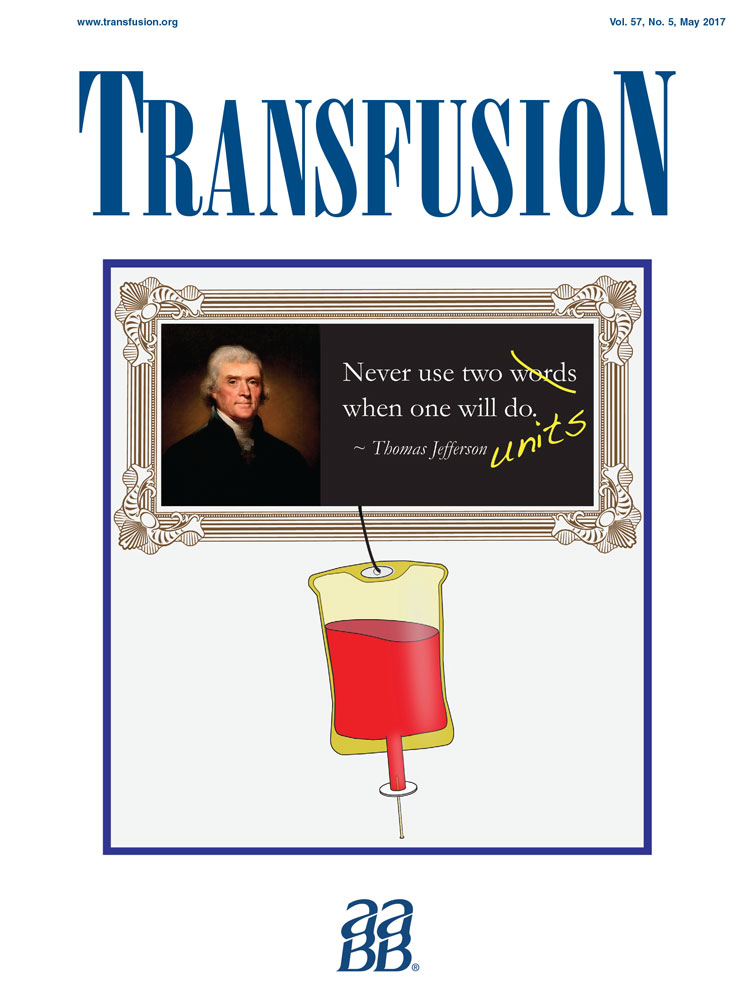A rare, potentially life-threatening presentation of passenger lymphocyte syndrome
Abstract
BACKGROUND
Passenger lymphocyte syndrome occurs when donor lymphocytes are transplanted with a solid organ and produce alloantibodies that react with antigens on the recipient's red blood cells (RBCs). Typically, passenger lymphocyte syndrome presents as immunoglobulin G antibody-mediated, extravascular hemolytic anemia with reticulocytosis. Often, the donor was alloimmunized before transplantation.
CASE REPORT
A 34-year-old Group O, D+ man with a negative antibody screen received a liver transplant from a Group O, D− donor. Twenty Group O, D+ RBC units were transfused on Postoperative Days (PODs) 0 through 2. On POD 7, the patient developed anemia, a weakly positive antibody screen, and a positive direct antiglobulin test with anti-D in the eluate. After POD 8, a D− transfusion protocol was initiated. Despite laboratory evidence of hemolysis, two initial peripheral blood smears showed no increase in schistocytes or spherocytes, the reticulocyte count was depressed, and a marrow biopsy revealed erythroid hyperplasia. Eventually, anemia resolved after a period of medication non-compliance; however, a positive direct antiglobulin test persisted to the last follow-up date (POD 233).
RESULTS
Other potential causes of aplastic anemia were investigated, but no alternative cause was found. History excluded passive anti-D. D+, LW− cells were reactive, excluding anti-LW. Genotyping showed no evidence of a partial D genotype. Chart review revealed that the liver donor had a history of anti-D. A diagnosis of passenger lymphocyte syndrome was reached.
CONCLUSION
Although antibody-mediated hemolytic anemia has been reported to cause reticulocytopenia in the presence of marrow erythroid hyperplasia, this report of passenger lymphocyte syndrome causing a similar post-transplant anemia in association with reticulocytopenia is noteworthy.




